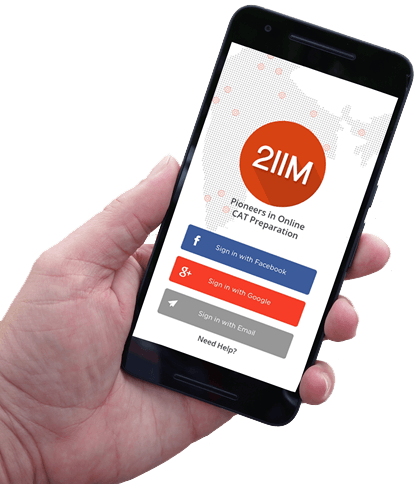CAT Verbal Questions - Reading Comprehension
Fact and Fiction
Sound the alarm! The kingdom of letters has admitted Trojan horses: James Frey, JT Leroy, Misha Defonseca, Margaret B. Jones, Herman Rosenblat, and now Matt McCarthy, portions of whose baseball memoir, the New York Times reports, are “incorrect, embellished or impossible.” The watchmen have let down their guards. I write: Hold your horses. In the rush to diagnose these fake memoirs as symptoms of a diseased culture, we have failed to consider an equally plausible alternative. What if the exposure of fake memoirists is not due to an increased frequency of lying, but rather to our increased ability to root out liars and hold them accountable for their verisimilitudes? Perhaps the outings of these hoaxes mark not a blurring of the line between fact and fiction, but a further demarcation. Indeed, it may be helpful to remember that the novel was born from exactly such confusion. One of the standards by which the earliest novels were judged was their ability to convince readers that their narratives were, in fact, real. Authors deployed several tricks to scaffold the illusion. 'Robinson Crusoe' was “written by himself,” according to the novel’s title page, which omitted Daniel Defoe’s name. Samuel Richardson’s novel 'Pamela', an attempt to instruct in good conduct through entertainment, was written as a series of letters penned by the heroine. In his preface to the novel, which excluded his name altogether, Richardson included several real letters from friends to whom he had shown the manuscript, but he changed the salutation from “Dear Author” to “Dear Editor” and even, writing under the guise of “editor,” praised “Pamela’s” letters. However, this was a lie, but not a hoax. Richardson wanted his novels to be read with "Historical Faith", since they contained, he believed, "the truth of the possible- the truth of human nature". Richardson’s authorship was revealed shortly after Pamela’s publication, but rather than serving time on Oprah’s couch, he was hailed as an innovator of the novelistic form. Whereas novels were unashamedly fake memoirs at their conception, our recent hoaxes suggest that the line between the genres, once drawn, cannot easily be erased. This is in no small part due to the Internet’s surveillance. All along, historians had raised questions about Misha Defonseca, who claimed to have survived the Holocaust by living with a pack of wolves, but the engine of her downfall was her former publisher Jane Daniel’s blog. James Frey’s sine qua non of the fudged-memoir genre, A Million Little Pieces, was debunked by the website The Smoking Gun, which posted his actual arrest records and compared them to Frey’s embellished retellings. Deborah Lipstadt used her blog to gather evidence against Herman Rosenblat’s memoir. If anything, you could argue that the fact-checkers are doing too good a job. There seems to be some risk that, in attempting to hold memoirs to journalistic standards of factuality, the watchdogs miss the forest for the trees, fixating on minor details in books whose general pictures are correct. The New York Times includes in its dossier against Matt McCarthy disputations by teammates who McCarthy alleges threatened children and made fun of Hispanics, as though their denials of having said such self-incriminating things were more trustworthy than McCarthy’s accusations. When Jose Canseco published his baseball memoirs Juiced and Vindicated, reviewers caviled over minor details and unsubstantiated claims, including that Alex Rodriguez had used steroids. Recent events have proven the gist of Canseco’s memoirs largely correct. Indeed, it seems unlikely that, say, every claim in Casanova’s The Story of My Life would hold up to such scrutiny. And yet, if we knew this were the case, would we excise it from the canon? Writers’ enormous talents can sometimes render moot questions of their works’ factuality; our fraudsters, meanwhile, attempted to compensate for their meager talents by actually inhabiting their bloated fictions. They suffer not an excess of imagination, which can illuminate even the most mundane experiences, but a retreat from it. And yet simply because they lost their handles on the truth does not mean that the culture also has. Maybe the symptom of our age is not the fake memoirists themselves, but the catching of fake memoirists. In which case: Sound the church bells! The traitors are routed! The watchmen won!
Which of the following is a suitable title for the passage?
- How to write a memoir
- The age of literary fraud
- Who is afraid of fake memoirists
- Writing in the age of the internet
- Correct AnswerChoice C Correct answer
- Explanatory Answer
- Medium
Which of the following is the author unlikely to agree with?
- There isn’t more literary fraud in our age. More fraud is coming to light due to the Internet’s surveillance.
- The line dividing novels and fake memoirs was never clear.
- As long as the main or essential part of a memoir is correct, it does not matter if lesser details do not stand up to verification.
- There exists now a widespread, diseased culture of literary fraud.
- Correct AnswerChoice D Correct answer
- Explanatory Answer
- Easy
With regard to the novel ‘Pamela’, the author states that Richardson’s artifice “ was a lie, but not a hoax”. What does he mean?
- It was an unintentional deception that contained the truth of human nature and was hence acceptable to readers.
- It was just a ploy to capture the imagination of the readers with the truth of the possible.
- It was a deception perpetrated simply to make money.
- It was a mere prank, and did not generate public interest.
- Correct AnswerChoice B Correct answer
- Explanatory Answer
- Medium
The word ‘verisimilitude’ in the passage is farthest in meaning to
- absurdity
- plausibility
- authenticity
- credibleness
- Correct AnswerChoice A Correct answer
- Explanatory Answer
- Medium
Our Online Course, Now on Google Playstore!

Fully Functional Course on Mobile
All features of the online course, including the classes, discussion board, quizes and more, on a mobile platform.
Cache Content for Offline Viewing
Download videos onto your mobile so you can learn on the fly, even when the network gets choppy!

Free CAT Prep Questions
- Percents Profits & Interests
- DI - Bar Graphs
- Geometry
- VA - Sentence Rearrangement
- Speed Time Races
- DI - Pie Charts
- Coordinate Geometry
- VA - Sentence Elimination
- Ratio Mixtures, Averages
- DI - Multiple Graphs
- Trigonometry
- VA - Sentence Correction
- Logarithms and Exponents
- DI - Word Problems
- Mensuration
- VA - Para Completion
- Pipes Cisterns
- DI - Line Graphs
- Permutation; Probability
- VA - Text Completion



 Facebook
Facebook You Tube - CAT Prep
You Tube - CAT Prep Google +
Google +